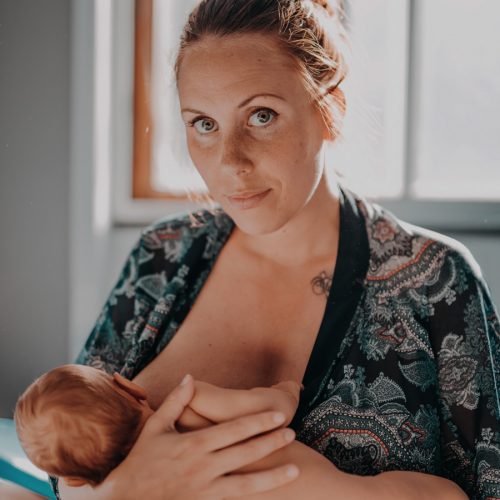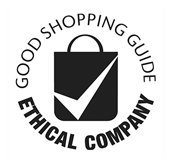Post-pregnancy periods
What to expect with post-pregnancy periods
You’ve spent months of your life growing another human being. You’ve gone through the intensity of birth and now you find another spectre looming over you; the ghost of periods past!
Some people will have been grateful for the pregnancy related reprieve from their periods, while others will be keen for their normal menstrual rhythm to return. Either way, the anticipation of post-pregnancy periods will conjure up a whole host of questions for most people. ‘When will my periods return?’, ‘Will they be the same as before?’
For some people this period-based unknown can cause anxiety. For those with worries around this, a little bit of knowledge can sometimes provide a lot of reassurance. Join me below while we delve into the tricky topic of post-pregnancy periods and what to expect when you’re no longer expecting!
Post-pregnancy periods: your questions answered
I’ve just given birth and I’m bleeding; is this a period?
Immediately following birth everyone will bleed. This is completely normal but it is not a period. The bleeding experienced in the days and weeks after birth is instead something called ‘lochia’. Lochia mainly consists of blood but also contains things such as:
- amniotic fluid (the ‘water’ that sits around the baby during pregnancy)
- vernix (the creamy substance that coats and protects babies’ skin in the womb)
- and lanugo (soft, downy hair that babies develop early in pregnancy.4
The blood that forms most of the lochia is the womb shedding the thickened layer it had during pregnancy, and from the area in the womb where the placenta used to be attached.
You can continue to lose lochia for up to 6 weeks following birth (though it stops much sooner than this for most people). Over time, you should gradually lose less and less lochia. It goes from the quantity of a heavy period immediately after birth, to small amounts of spotting towards the end. The colour of the lochia should also change. Starting bright red, it will then turn to a pink or brown, before finally becoming more of a pale whitish colour.
While you’re losing lochia your womb will also be doing something amazing called ‘involuting’. Involuting is when your womb reduces back to its normal pre-pregnancy size (often causing period-pain-like discomfort).
You shouldn’t use any internal period products (such as a menstrual cup or tampon) during this time as this may increase your risk of getting an infection. Big maternity pads are what’s called for here; they may evoke images of sanitary towels from yesteryear, but they do the job!
If you have any worries about your lochia you should seek immediate advice from your midwife, local maternity unit or doctor. For example, if you think you are bleeding too much, passing large clots or the lochia has developed an unpleasant smell.
When will my periods return after giving birth?
This is a very common question surrounding post-pregnancy periods. Unsurprisingly, the speed at which your period comes back will be different for everyone, and there are multiple things that can influence this. Ultimately, the thing that is most likely to impact how quickly you get your period back is how you are feeding your baby.
For those who formula feed or mixed feed (giving both breastmilk and formula)
Periods can return from as soon as 5-6 weeks after giving birth. This could mean you are fertile and able to become pregnant from as early as 3 weeks following birth.
For those who are exclusively breastfeeding
For those giving the baby nothing but their own breastmilk for every feed, the answer is a little more complex. Towards the end of pregnancy, your body begins to release a hormone called prolactin. This hormone is what stimulates your body to produce breastmilk. But it also has a dual action of suppressing ovulation (the release of an egg from the ovaries). Generally, if you don’t ovulate you won’t have a period (though this is not always the case).
When a baby feeds at the breast, your body produces more prolactin. If you are breastfeeding regularly and frequently, prolactin levels in your body should stay high. This means that those who exclusively breastfeed may find their period doesn’t return for at least 6 months. Most will see their period return between 9 and 18 months after birth.
When will I be able to get pregnant again after giving birth?
Again, this will very much vary from person to person and can be impacted by several different factors.
To get pregnant, you need to be ovulating. Generally speaking, having periods and a healthy menstrual cycle indicates that ovulation is happening. You may then think “Aha, my period will let me know when I’m fertile again after birth”. Sadly, this is not something you can rely on! As mentioned above, periods and ovulation are not necessarily always a package deal. You can have a period without ovulating, and ovulate without having a period. It’s also good to note that, because ovulation normally occurs before you get your period, you will be fertile several weeks before your first period comes after birth. It’s impossible to predict exactly when your first period will come. So, it’s worth bearing in mind that any time you have sex after giving birth, you could become pregnant again.
The way you feed your baby will likely impact how quickly you become fertile again after giving birth.
For those who formula feed or mixed feed
Periods may come back as soon as 5-6 weeks after birth and ovulation will usually occur a few weeks before a period. Therefore, fertility may also return quickly, i.e. as early as 3 weeks after birth.
For those who are exclusively breastfeeding
The regular production of prolactin is likely to suppress ovulation for longer after giving birth. This means that it will usually take longer to become fertile again. Many people actually use this natural suppression of ovulation as a form of natural contraception. It’s known as the Lactational Amenorrhoea Method (LAM) of contraception. Lactational amenorrhoea simply means that regular breastfeeding is stopping you from ovulating and having periods.
Research has been done around this method of contraception. The consensus is that the LAM method of contraception is 98% effective if:
- your baby is under 6 months old
- AND you exclusively breastfeed
- AND your periods haven’t yet come back.
The NHS advises that the LAM method then becomes less reliable, meaning you may ovulate and be fertile. Another form of contraception needs to be used if:
- you are not only giving your baby breast milk as they are older than 6 months. Examples include a dummy, formula or solid foods
- your periods have returned (light spotting counts)
- you’ve stopped night feeding
- you have reduced the amount of times you breastfeed them
- more time is left in between feeds, both during the day and at night
The main point to takeaway here is that we’re all different. Some people will become fertile much more quickly after birth than others. So, it’s impossible to predict ahead of time whether you will be in the quicker or slower group. For the physical wellbeing of both the pregnant person and the baby, the World Health Organisation recommends a minimum interval of 2 years between pregnancies. So, if you’re not planning on getting pregnant again quickly it’s important to consider and discuss your contraceptive choices with your doctor or midwife before starting to have sex again.
If you are keen to become pregnant again but are still breastfeeding and your periods haven’t started yet, then this is something you should discuss with your doctor, too.

Will my periods be the same after giving birth?
Another post-pregnancy periods question for which the answer will be different for everyone. When your periods do return they may be irregular for some time while your body gets used to regulating your cycle again. You may have one period and then a gap of several months before the next. If this does happen and you have been having sex, it is always advisable to do a pregnancy test.
You first periods after giving birth may well be different than the ‘norm’ for you. You may experience:
- irregular cycle lengths
- cramping that is better or worse than before
- heavy periods
- small amount of clotting
For most people, periods will eventually settle back into more of a normal rhythm for them. However, anecdotally some people do report that their periods can permanently change. Changes can affect how heavy they are, how comfortable (or not) they are, and how long they last.
As with any unexplained changes, if you have concerns that your period has changed significantly, then this is something you should explore with your doctor. Particularly if your period is a lot heavier or you are passing clots. There are some medical conditions that can cause changes to periods post-birth. It is always worth getting this kind of thing checked out, if only for your own peace of mind. However, this may also just be a normal change for you.
Do check out this video with Dr. Brooke Vandermolen, aka @theobgynmum, Obstetrics and Gynaecology doctor, mother of two, and #RealMooncupUser. Brooke offers her answers to the most common questions about what to expect from your periods after pregnancy.
What will my periods be like after a pregnancy loss?
Pregnancy loss or miscarriage can be an incredibly challenging time. This is often made harder by trying to navigate all the physical changes your body is also going through. Understanding what is likely to happen with your periods and fertility after pregnancy loss can at least remove one set of questions from your plate.
After pregnancy loss or miscarriage, your periods should come back within 4-8 weeks, though this will vary from person to person. Your initial period may be heavier and longer than usual. If your period hasn’t come back after 6 weeks it may be worth taking a pregnancy test. If this comes back positive, but you know you can’t be pregnant, then you should contact your doctor or the hospital who provided your care.

After a pregnancy loss, you are advised to wait until the bleeding has stopped and all symptoms have gone away before becoming sexually active again. You can become fertile again soon after a pregnancy loss. If you don’t want to become pregnant you should use contraception. Talk to your doctor first as some doctors may recommend waiting until you’ve had at least one period before trying again.
For more information and support for those experiencing pregnancy loss in the UK, the NHS website and The Miscarriage Association can help. For those in other parts of the world, your doctor should be able to point you in the direction of further support.
What kind of period product should I use when my periods come back after giving birth?
As with choosing period products generally, selecting the right menstrual product for you after giving birth is a very personal choice. There may be a few different things to consider that impact your decision.
Wait a while before using internal products
If your period comes back quickly, depending on the type of birth you had you may still have some tearing, swelling or discomfort in and around the vagina. In that case it would be advised that you wait until any discomfort has fully resolved before you think about using an internal period product again. At the very least, it is recommended that you wait at least 6 weeks after birth and until you have had your 6 week postnatal check up with your doctor before you think about using an internal period product again. This is to avoid any increased risk of getting an infection.
Remember your pelvic floor muscles!
After giving birth (vaginally or by caesarean section) it is common that the muscles of the pelvic floor are less strong than they were before. This is because these muscles have carried the weight of a pregnant uterus around for some time. If you have had or have attempted a vaginal birth, the strain that has been placed on these muscles when pushing during birth can also have an impact. These muscles can be strengthened again and everyone who has given birth is recommended to perform pelvic floor exercises postnatally. Some people may also find their cervix sits lower after giving birth. While this may be a normal change for some people, this can also be a sign of a pelvic organ prolapse so should be checked out by your doctor.
A weaker pelvic floor or lower sitting cervix may impact on the use of internal period products, particularly if the birth was quite recent. This may change with time and if pelvic floor tone strengthens again. But in the short term, you may find it easier and more comfortable to use an external period product.
Ultimately, the period product you choose will be personal to you and your circumstances. While some people may struggle with internal products soon after birth, others will have no issues at all. So, there may be a bit of trial and error involved when trying to figure out what feels right for you.
Can I use the Mooncup menstrual cup after childbirth?
If you’re thinking about switching to the Mooncup menstrual cup, or are an existing Mooncup® user who would like some support with using it after birth, please get in contact with out friendly Mooncup advisors. All our Mooncup advisors are medically trained nurses or midwives, and they will be happy to help. They can be contacted at [email protected].
Most people have some worries about what their periods will be like after birth. I hope this dive into post birth post-pregnancy periods provides some reassurance that there shouldn’t be too much to worry about. Things might be different for a while, but when your body figures out its new ‘normal’, you can generally find a new menstrual rhythm for you.
Did you know that we offer a unique Advice Service run by medical health professionals, like Theresa? They can be contacted with any more questions about using the Mooncup menstrual cup for post-pregnancy periods and any usage queries. Here to help you make the switch.
Click here to find out more about the Mooncup menstrual cup or to buy yours here.








